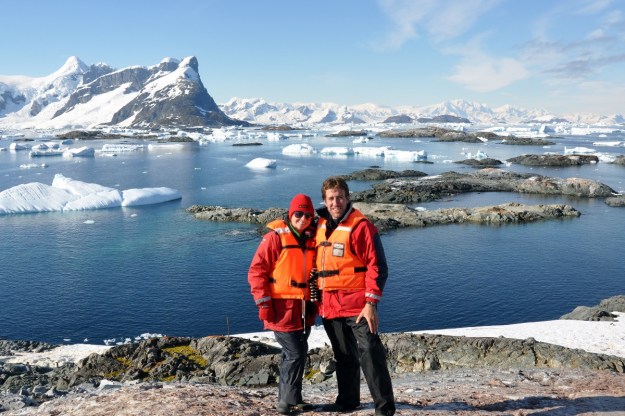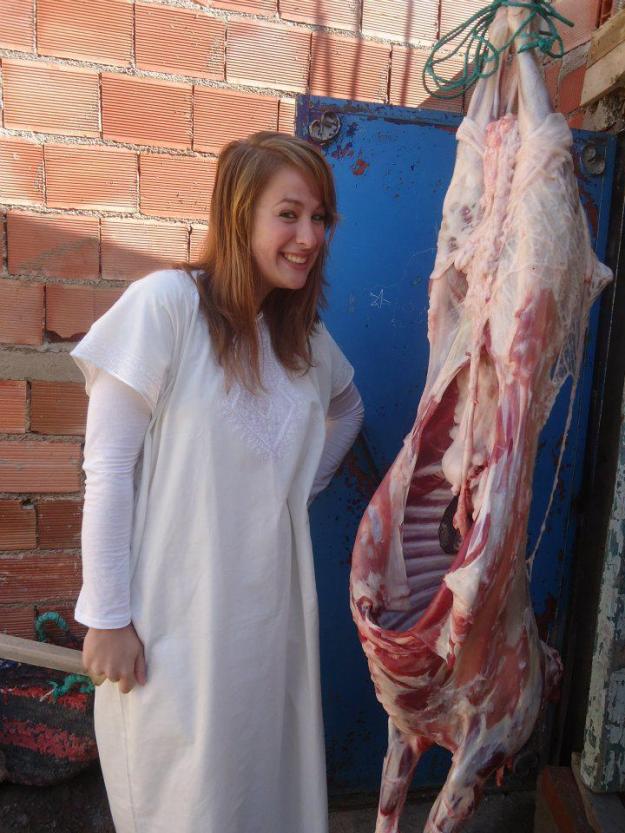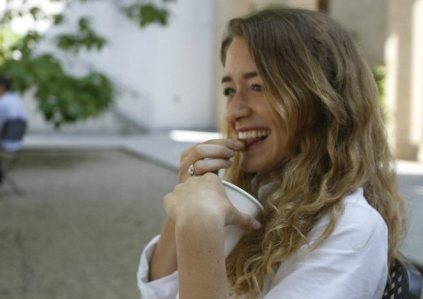Two twenty-somethings give up their lives in California to move to Nicaragua to start a business which gives back to the community. They know little Spanish, have a very modest budget, and have never been to the country, but somehow end up running a hostel and making a real contribution to education in their new home. Now you know why I chose Life Out of the Box for this week’s Abroad Blog of the Week. I was actually introduced to this entrepreneurial duo from a nomination by a reader. I’m so glad too because Quinn and Jon of Life Out of the Box are doing incredible things. Whether you are of the Millennial generation or not, you are bound to be inspired by their interview and blog.
How did you decide to start your business in Nicaragua?
We have always wanted to start a business of our own since we were kids, so the idea of creating a business of our own was one that had been in the works for a while. Our ideal lives consisted of traveling to new countries and learning about new cultures. We wanted to travel the world, be our own boss, and live overseas. After lots of brainstorming, we decided that our ideal business to start would be one that integrates giving back into the finances from the very beginning. We wanted to search for unique handmade products that would appeal to people in the States and be able to give back to every new country we visited. So we decided that for every handmade product we would sell in the States we would give back an educational product to that country.
We knew that we needed to dedicate all of our time to create this business, but we didn’t want to borrow money from family or take out a loan. Therefore, in order to save our money through the startup phase of the company where we wouldn’t be making money, we decided that living somewhere with a lower cost of living than California would give us the best opportunity to do what we wanted.
So we took a map of the entire world and ultimately chose Nicaragua. There were several factors and a lot of research that went into the decision, of course, as we were leaving everything stable that we had ever known to start something of our own. Neither of us had ever been to Nicaragua before and had done as much research online to be able to understand the culture as we could, but there wasn’t much. This made us want to go discover it for ourselves even more–the unknown was exciting. We both knew some Spanish, but thought that this would be the perfect opportunity to improve it. We also learned that the average person lives off of $2 a day in Nicaragua as it is the second poorest country in Central America. We knew we could find a way to give back which could make a big difference. A little goes a long way in Nicaragua and we think that is such a beautiful thing–it’s the small things that matter the most. Within a month of making the decision to move and pursue this dream of living overseas and starting our own business, we quit our jobs, packed one backpack of clothes, said goodbye to family and friends, and hopped on a plane to Nicaragua.
What are the challenges and highlights you’ve experienced in trying to start a business overseas?
The highlight for us both was the day that we launched our online store, sold our very first bracelet and then gave our very first notebook to a sweet Nicaraguan girl named Naomi. It was one of the greatest and most rewarding days of our lives. Naomi, 6 years old, was absolutely ecstatic when she picked out a notebook and found out that it was a gift from someone in the United States. She started dancing around and laughing. I cried. It was so beautiful to see how much a single notebook meant to a little girl here. They can draw in it, write in it, use it for school, use it as a journal, write song lyrics in it–the possibilities are endless. It allows kids to be creative, use their imagination and gain confidence in their talent and skills. It’s an opportunity that many people get as a kids in the first world without thinking about it, but an opportunity that unfortunately doesn’t exist for everyone worldwide.
The challenges here we’ve experienced have all taught us both that patience, persistence and the ability to adapt are keys in creating a business, especially when you’re in a third world country where you don’t have everything at your finger tips. We’ve had internet outages when we needed it the most–the day we were going to Skype with a high school class in LA, our Internet was of course out all day! So we improvised and searched everywhere for a place with WiFi and finally found a little coffee place with it. We’ve also hunted for days searching for product material, product designers and packaging. One day something or someone will be there and the next they won’t. They have a thing here called “Nica time” which basically means there is no structured time. It took a while to adjust from the States where we’ve been trained that punctuality is key in business: if you’re on time, you’re late and if you’re early you’re on time. We still believe this, but when it comes to people here we’ve learned to just be patient and understand that it is a different culture. Overall though, people here have been so helpful and welcoming; we both feel very lucky to have encountered everyone we’ve met along the way.
How did you come to run the Life out of the Box restaurant and bar? How has it impacted your lives in Laguna de Apoyo?
That is a great story of randomness and spontaneity–one that wouldn’t have bee able to happen had we not set up our lives to being open to any and all opportunities. That’s one of our favorite parts about being entrepreneurial and being our own boss, at the drop of any opportunity we can take it. We had just moved from San Juan del Sur to head up to Masaya, but wanted to make a stop in Granada so that we could travel with all of our new friends for a few days longer. We ended up staying at Oasis Hostel, which is a well-known and very nice hostel in the heart of Granada. We stayed there just one night with our friends, but as we were checking out the next morning we noticed a sign on the walls saying that their other hostel in Laguna de Apoyo was looking for a couple to run the hostel, bar & restaurant for 90 days. Free room & food. It sounded great for 3 months and we knew we’d have a good time with it as we each had experience in hospitality & guest services. So we called the owner, she put us up at the hostel for a couple of days, we fell in love with the resort and jungle and decided to have a go at it. The staff only knew Spanish, so that was a huge learning experience. It’s one thing to try to order food in Spanish, but it’s quite another to manage people in a language you’re not completely fluent in. We learned a lot about how business is done in Nicaragua and how to manage our own staff. We were able to get our name out to many of our guests and improve our website in the time we lived there. We are very thankful to have been able to live in such a beautiful serene place as long as we did. It really is one of Nicaragua’s hidden gems.
How has this experience differed from your previous international ventures?
Well this is certainly the longest we’ve ever stayed in one place internationally. The longer you live in a place, the more necessary it is to learn the language, so being immersed and forced to speak a foreign language has been very different from our other international travels where we weren’t there long enough to feel like we needed to know the language. Living here we’ve had the time to actually explore and truly feel what it’s like to live like a Nicaraguan. We have the time now to be able to do that rather than before when we traveled it was much faster, on a timed and planned schedule–aka binge travel. Because we couldn’t do it very often and for very long, we felt like we had to cram as much as we possibly could into the short time frame that we had. It’s something we didn’t realize we were doing until we actually had the time to make no plans and just explore. We’re thankful that we have the time to travel the way that we do because it allows us to learn more about the people and the different cultures–something that was very important to us as we defined our ideal lives. We certainly plan to make sure it stays this way everywhere we go all around the world.
What advice would you give other 20 somethings with the hopes of living abroad and helping the local community?
Get out there and do it. Just do it. One of our favorite quotes is, “Sometimes you just have to take the leap and build your wings on the way down”. It’s very true and we promise you, if you do make the leap of living your own life overseas to do what you want, you won’t regret it. You can always go back, but if you never go, then you’ll never know. Pushing yourself out of your safety zone will make you grow more than you’ll ever know. You get stronger. Once you take big leap like this and see that you actually can do it, you’ll be able to make other difficult decisions more easily as well. As for helping the local community, always know that you can make a difference. Even the smallest difference helps. Our biggest piece of advice is to help a cause that you are truly connected to. If you are personally connected to the cause, then your passion will drive you to succeed. It’s not always easy, so you need that passion and connection to keep you going when things are hard. Giving back to people who need it is the most rewarding experience either of us has ever had. It doesn’t matter where it is. In giving back selflessly, you receive just as much in return. We have a lot of faith and hope in our 20-somethings and even the younger teens–we are the Millennial Generation.
To this new generation, money is no longer the bottom line. Making the world a better place is. I’m proud to be apart of this generation and think that together we really can change the world. We want our story to inspire others to go out and make a difference themselves–if we can do it, so can you.












